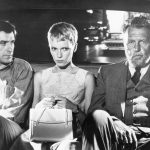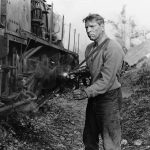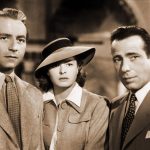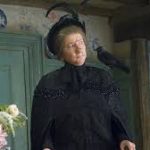One Flew Over the Cuckoo’s Nest (1975)
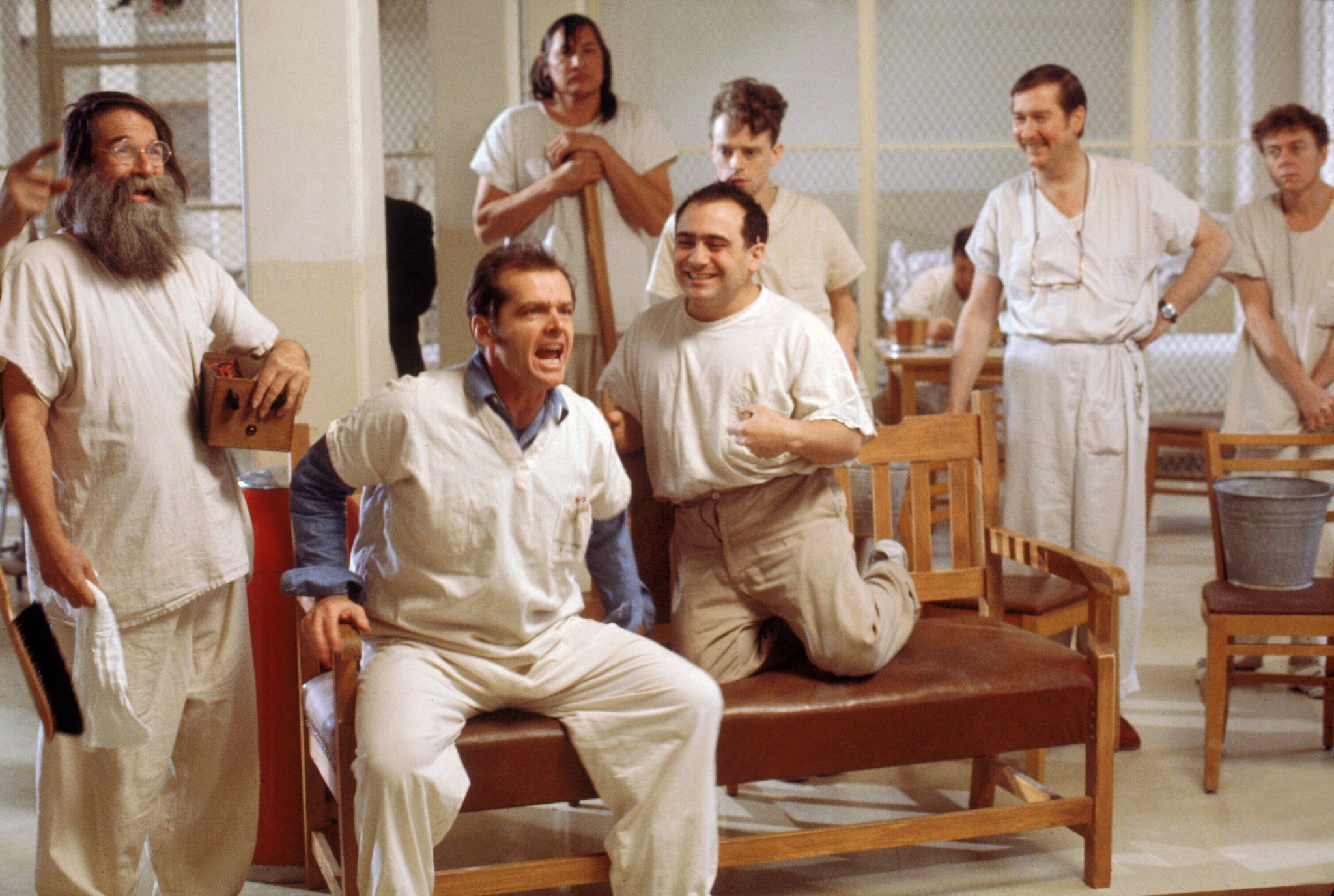
“One Flew Over the Cuckoo’s Nest,” directed by Milos Forman and released in 1975, is a seminal film that explores themes of freedom, authority, and the human spirit’s resilience against oppressive forces. Based on Ken Kesey’s novel of the same name, the film delves into the lives of patients in a mental institution and their interactions with authority figures, particularly the tyrannical Nurse Ratched.
The narrative unfolds through the eyes of Randle McMurphy (played by Jack Nicholson), a charismatic and rebellious criminal who feigns insanity to avoid hard labor in prison and ends up in a mental hospital. McMurphy’s arrival disrupts the regimented routine of the institution, challenging the authoritarian rule of Nurse Ratched (played by Louise Fletcher), who manipulates and controls the patients through subtle intimidation and psychological manipulation.

Central to “One Flew Over the Cuckoo’s Nest” is its exploration of individuality and conformity within a closed institutional environment. McMurphy emerges as a symbol of defiance against oppressive authority, encouraging his fellow patients to assert their autonomy and reclaim their humanity in the face of institutional dehumanization. Jack Nicholson’s electrifying performance captures McMurphy’s irreverence, wit, and underlying vulnerability, making him a compelling protagonist who embodies the spirit of rebellion against societal norms.
Thematically, the film critiques the abuse of power and the consequences of unchecked authority. Nurse Ratched symbolizes bureaucratic tyranny and the insidious nature of conformity, using manipulation and coercion to maintain control over the patients under her care. Louise Fletcher delivers a chilling portrayal of Nurse Ratched, portraying her as a formidable antagonist whose calm demeanor masks a deeply controlling and vindictive personality.

The dynamic between McMurphy and Nurse Ratched serves as the crux of the film’s narrative tension, as their ideological clash escalates into a battle for the hearts and minds of the patients. The supporting cast, including Brad Dourif as the vulnerable Billy Bibbit and Will Sampson as the stoic Chief Bromden, enriches the film with nuanced performances that underscore the characters’ struggles for self-identity and liberation from institutional oppression.
Visually, “One Flew Over the Cuckoo’s Nest” immerses viewers in the stark and claustrophobic environment of the mental institution, emphasizing the patients’ confinement and isolation from the outside world. Milos Forman’s direction captures the institutionalized routine with meticulous detail, juxtaposing moments of dark humor and poignant drama to underscore the characters’ humanity amidst their psychological struggles.

Moreover, “One Flew Over the Cuckoo’s Nest” resonates as a timeless allegory of resistance and resilience against conformity and oppression. The film’s exploration of mental illness, individuality, and the quest for personal freedom continues to resonate with audiences, offering a poignant commentary on the complexities of human nature and the societal forces that shape our identities.
In conclusion, “One Flew Over the Cuckoo’s Nest” (1975) stands as a cinematic masterpiece that transcends its genre to provoke thought and reflection on the themes of freedom, authority, and the indomitable human spirit. Milos Forman’s sensitive direction, coupled with powerful performances and a thought-provoking narrative, ensures that the film remains a landmark in cinematic history and a compelling exploration of the eternal struggle between conformity and individuality.


